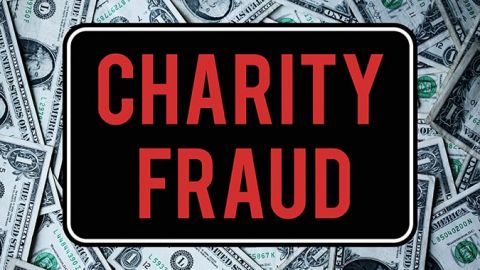Charity and Disaster Fraud

Charity fraud schemes seek donations for organizations that do little or no work; instead, the money goes to the fake charity’s creator. While these scams can happen at any time, they are especially prevalent after high-profile disasters. Criminals often use tragedies to exploit people who want to help.
As you can imagine, scammers are now on the prowl after the recent hurricanes. There is also often an influx of giving at the end of the year, so please keep the following information in mind as you navigate your charitable endeavors.
Charity fraud scams can come to you in many forms: emails, social media posts, crowdfunding platforms, cold calls, etc. Always use caution and do your research when you're looking to donate to charitable causes.
After a natural disaster or other emergency, unethical contractors and other scammers may commit insurance fraud, re-victimizing people whose homes or businesses have been damaged. Sometimes these fraudsters even pretend to be affiliated with the government, when they are not. If you need any post-disaster repairs, do your research before hiring any contractor.
The following tips can help you avoid these schemes:
- Give to established charities or groups whose work you know and trust.
- Be aware of organizations with copycat names or names similar to reputable organizations. They make their names similar to try to trick you.
- Be wary of new organizations that claim to aid victims of recent high-profile disasters. You’ll want to verify their legitimacy.
- Do your research. You can use the following online tools from the IRS and FTC to help find and verify legitimate charities:
- Give using a check or credit card. If a charity or organization asks you to donate through cash, gift card, virtual currency, or wire transfer, it's probably a scam.
- After a natural disaster or other emergency, carefully vet any contractors before hiring them to work on your home or business.
- ALWAYS practice good cyber hygiene:
- Don't click links or open email attachments from someone you don't know.
- Hover over links and/or manually type out links instead of clicking on them. The text you see may be different than the underlying link it is connected to.
- Don't provide any personal information in response to an email, robocall, or text.
- Check the website's address – most legitimate charity organization websites use “.org” at the end, not “.com.”
